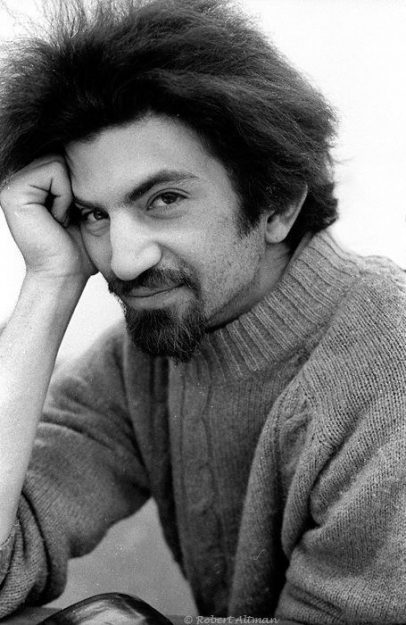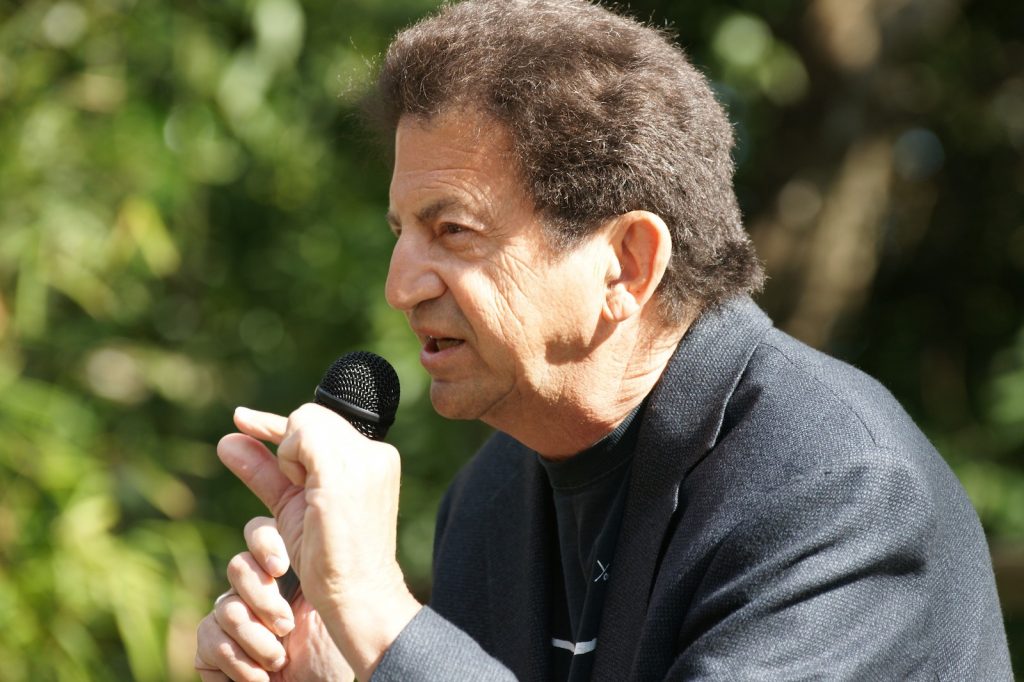Wes Nisker, a Buddhist teacher, award-winning broadcaster, comedian, counterculture figure, founding coeditor of Inquiring Mind, and author has died. He was 80 years old.
Nisker was born in 1942 in Nebraska to Jewish immigrant parents. He attended the University of Minnesota and has said he first became interested in Buddhism after seeing Alan Watts speak there in 1965. He arrived in San Francisco in the 1960s, as he said in an interview with SF Gate in 2003, “too late” to join the beatniks—he was particularly inspired by Jack Kerouac and Gary Snyder—so he was “assigned to the hippies instead.” “To this day, I consider myself a kind of mongrel bohemian, with a beatnik head and a hippie heart,” Nisker said in that interview.
In the late 1960s and in the 70s, Nisker was heard on the San Francisco radio stations KSAN and later KFOG. It was on the former station that he coined a phrase that he is often remembered for: “If you don’t like the news, go out and make some of your own.” His broadcasts combined news, commentary, music, and remixed audio; Nisker once said his news show was the only one you could dance to. Nisker was also known for his vox pop, or person on the street, interviews in the years leading up to television’s media takeover.

Nisker earned the moniker “Scoop” from activist Abbie Hoffman when Nisker was covering the Chicago Seven trial, when a group of men were charged by the US government with conspiracy to incite a riot during the 1968 Democratic National Convention in Chicago 1968.
Nisker studied with Asian and Western Buddhist teachers for years, and eventually started teaching too; he was a teacher at Spirit Rock, among other places. In 1971, Nisker attended S.N. Goenka’s first 10-day Vipassana retreat in Bodhgaya, India. Also in attendance were Sharon Salzberg, Joseph Goldstein, and Ram Dass. In 1984, following the encouragement of Insight Meditation teacher Joseph Goldstein, Nisker cofounded and coedited Inquiring Mind with Barbara Gates. The semiannual journal, “dedicated to the creative transmission of Buddhadharma to the West,” continued publishing articles, essays, poetry, and more until 2015. The full digital archive, with a regular column by Nisker, has been completed and is housed by the Sati Center for Buddhist Studies online. The journal remains available online, and in the days following Nisker’s death, the homepage included his poem, “Why I Meditate (After Allen Ginsberg).”
Gates, recalling her longtime friend and collaborator, said: “Wes was a wonderful interviewer. He liked to do interviews as a team with me and other dharma friends. His favorite interviewees included Gary Snyder, John Cage, Allen Ginsberg, Joanna Macy and Ram Dass, to name a few. He also loved poetry. He delighted in selecting poems for each issue of the Mind for a section we called “Poems and Not Poems.” April Fools Day was his favorite holiday. He was a playful punster.”
In the early 2000s, Nisker performed as what he believed was the “world’s first Buddhist stand-up comedian.” A 2005 interview between Nisker and Andrew Cooper, Tricycle’s features editor, on the topic of being Buddhist and Jewish contains a number of zingers:
Which Jewish writer would you rather have as a dharma student, Marcel Proust or Franz Kafka? Oh, without hesitation I’ll take Kafka. You certainly wouldn’t have to explain the First Noble Truth to him, and furthermore, he already knows that he is part cockroach, something most Buddhists don’t understand until after many years of practice.
Following Nisker’s death, Cooper shared a memory of Nisker via email: “I remember once years ago walking around SF with him as we tried to have a conversation but every few steps someone who was obviously a good friend from somewhere would stop us to catch up a little. It was a little like walking with someone famous, but not really because there was in each stop something meaningful exchanged. I was at first frustrated by what I viewed as interruptions but eventually it clicked that I was watching something really cool in itself, one little bit of beauty after another.”

Nisker authored numerous books, including Buddha’s Nature: A Practical Guide to Enlightenment; The Essential Crazy Wisdom; If You Don’t Like the News … Go Out and Make Some of Your Own; The Big Bang, the Buddha, and the Baby Boom; Being Nature: A Down-to-Earth Guide to the Four Foundations of Mindfulness, and more.
In 2016, Nisker was inducted into the 11th Bay Area Radio Hall of Fame.
Last winter, Spirit Rock celebrated Nisker’s 80th birthday, according to a remembrance disseminated by Jack Kornfield. “When one of your best friends and spiritual brothers dies, it’s hard to put into words all that it means. Sad and tender, hard to fathom and also a loving relief for his release from a deteriorating body,” Kornfield wrote. “He loved to invite awe of the cosmos, he opened windows into the ecological mysteries, he smiled at the absurdity of human society, and carried a playful endless enormous creativity and deep Dharma vision. And here’s one of the best things…..Wes was alway kind. What a beautiful thing to say of someone’s life!”
Tricycle published an excerpt from his last book, entitled “Making Friends with Death: A meditation for new beginnings” in the spring 2023 magazine.
In an undated post on his website, called “The Practice of Geezing,” Nisker humorously and sincerely reflected on his body and mind growing older.
Wandering the hills of Northern California, I carry the realization that I will someday be leaving this place I love, forever. Never again will I see the great pines waving through the in-flowing fog, or the gnarled sculpture of the oaks standing firm; or smell the vibrant decay of the woods punctuated with the tang of fennel and eucalyptus—all of it will vanish, along with my senses themselves.
Nisker, who had been living with Lewy body dementia, was surrounded by friends when he died. Condolences continue to roll in on his Facebook page. Details on a service to follow.
Thank you for subscribing to Tricycle! As a nonprofit, we depend on readers like you to keep Buddhist teachings and practices widely available.

